
The Blind Assassin is a novel by the Canadian writer Margaret Atwood. It was first published by McClelland and Stewart in 2000. The book is set in the fictional Ontario town of Port Ticonderoga and in Toronto. It is narrated from the present day, referring to previous events that span the twentieth century but mostly the 1930s and 1940s. It is a work of historical fiction with the major events of Canadian history forming an important backdrop, for example, the On-to-Ottawa Trek and a 1934 Communist rally at Maple Leaf Gardens. Greater verisimilitude is given by a series of newspaper articles commenting on events and on the novel's characters from a distance.
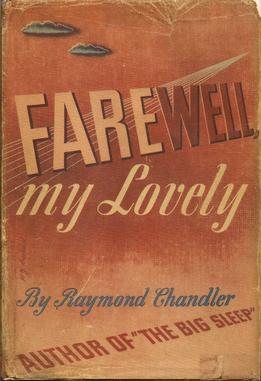
Farewell, My Lovely is a novel by Raymond Chandler, published in 1940, the second novel he wrote featuring the Los Angeles private eye Philip Marlowe. It was adapted for the screen three times and was also adapted for the stage and radio.

Speak is a 2004 American independent coming-of-age teen drama film based on the award-winning 1999 novel of the same name by Laurie Halse Anderson. It stars Kristen Stewart as Melinda Sordino, a high school freshman who practically stops talking after a senior student rapes her. The film’s story is told through Melinda's perspective. It was broadcast on Showtime and Lifetime in 2005 after premiering at the Sundance Film Festival in 2004.
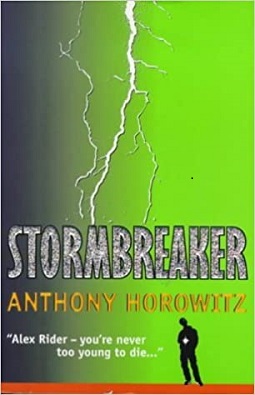
Alex Rider is a series of spy novels written by British author Anthony Horowitz. The novels revolve around a teenage spy named Alex Rider and is primarily aimed towards young adults. The series currently comprises thirteen novels, as well as six graphic novels, seven short stories, a supplementary book, and a TV series. A fourteenth novel will be published in 2023.
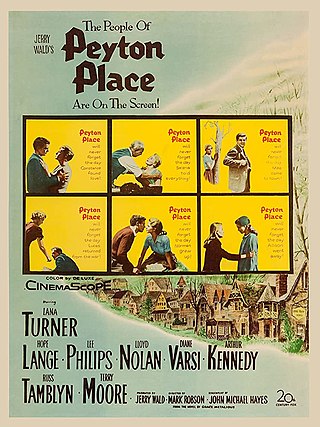
Peyton Place is a 1957 American drama film starring Lana Turner, Hope Lange, Lee Philips, Lloyd Nolan, Diane Varsi, Arthur Kennedy, Russ Tamblyn, and Terry Moore. Directed by Mark Robson, it follows the residents of a small fictional New England mill town in the years surrounding World War II, where scandal, homicide, suicide, incest, and moral hypocrisy belie its tranquil façade. It is based on Grace Metalious's bestselling 1956 novel of the same name.
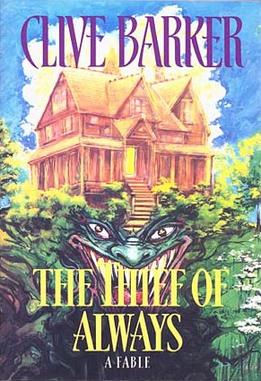
The Thief of Always is a novel by Clive Barker that was published in 1992. The book is a fable written for all ages. Its cover was created by Barker, and the book contains several black and white illustrations by him.
In the United States, there have been several controversies involving the misunderstanding of the word niggardly, an adjective meaning "stingy" or "miserly", because of its phonetic similarity to nigger, an ethnic slur used against black people. Although the two words are etymologically unrelated, niggardly is nonetheless often substituted with a synonym anyway, because some listeners and readers don't know that etymological fact. People who have used the word rather than follow that advice to avoid it have sometimes faced a backlash.

Lolita is a 1962 psychological comedy-drama film directed by Stanley Kubrick and based on the 1955 novel of the same title by Vladimir Nabokov, who is also credited with writing the screenplay. The film follows Humbert Humbert, a middle-aged literature lecturer who becomes sexually infatuated with Dolores Haze, a young adolescent girl. It stars James Mason, Shelley Winters, Peter Sellers and, as the titular character, Sue Lyon.

Recess: School's Out is a 2001 American animated comedy adventure film based on the Disney television series Recess, and features the voices of Andrew Lawrence, Rickey D'Shon Collins, Jason Davis, Ashley Johnson, Courtland Mead, Pamela Adlon, Dabney Coleman, Melissa Joan Hart, April Winchell, and James Woods.
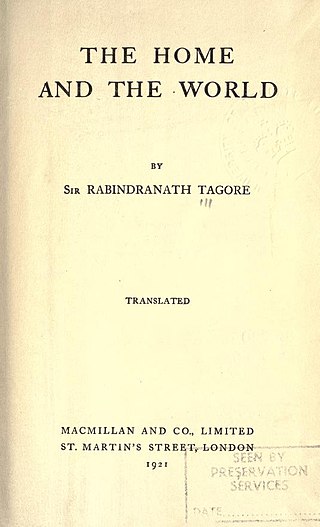
The Home and the World is a 1916 novel by Rabindranath Tagore. The book illustrates the battle Tagore had with himself, between the ideas of Western culture and revolution against the Western culture. These two ideas are portrayed in two of the main characters, Nikhilesh, who is rational and opposes violence, and Sandip, who will let nothing stand in his way from reaching his goals. These two opposing ideals are very important in understanding the history of the Bengal region and its contemporary problems.

The Citadel is a 1938 British drama film based on the 1937 novel of the same name by A. J. Cronin. The film was directed by King Vidor and produced by Victor Saville for Metro-Goldwyn-Mayer British at Denham Studios. It stars Robert Donat and Rosalind Russell.
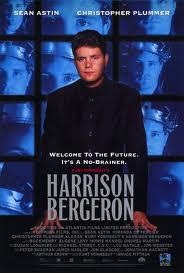
Harrison Bergeron is a 1995 cable science fiction television movie film loosely adapted from Kurt Vonnegut's 1961 dystopian short story of the same name. It was produced for Showtime and first screened on August 13, 1995. It was released to VHS in 1998.
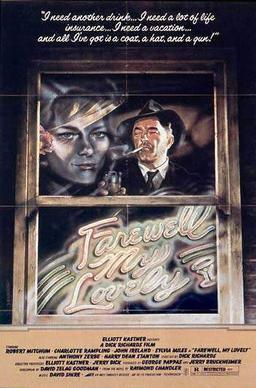
Farewell, My Lovely is a 1975 American neo-noir crime thriller film directed by Dick Richards and featuring Robert Mitchum as private detective Philip Marlowe. The picture is based on Raymond Chandler's novel Farewell, My Lovely (1940), which had previously been adapted for film as Murder, My Sweet in 1944. The supporting cast features Charlotte Rampling, John Ireland, Jack O'Halloran, Sylvia Miles and Harry Dean Stanton, with an early screen appearance by Sylvester Stallone, and hardcore crime novelist Jim Thompson, in his only acting role, as Charlotte Rampling's character's elderly husband Judge Grayle. Mitchum returned to the role of Marlowe three years later in the 1978 film The Big Sleep, making him the only actor to portray Philip Marlowe more than once in a feature film.
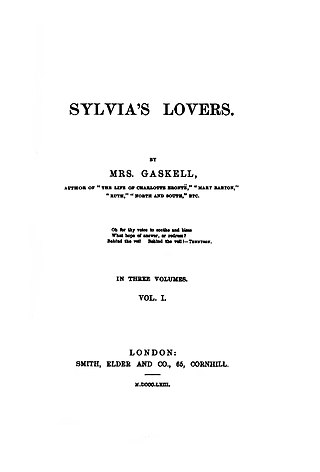
Sylvia's Lovers (1863) is a novel written by English author Elizabeth Gaskell, which she called "the saddest story I ever wrote".

Winter is a young adult novel by John Marsden in 2000. Winter, the protagonist of the story, returns to the family estate which she left at the age of four when her parents died. She finds that everything is not as it seems when she visits her parents' graves, and she is determined to uncover the answers.

An American Girl: Chrissa Stands Strong is a 2009 American television film and the fifth film in the American Girl series. It was the first American Girl film to focus on a Girl of the Year, starring Sammi Hanratty in the title role. It is based on the Chrissa books in the American Girl series written by Mary Casanova.

Because They're Young is a 1960 American drama film directed by Paul Wendkos and starring Dick Clark as Neil Hendry, an American high-school teacher who tries to make a difference in the lives of his students. The film co-stars Tuesday Weld, Michael Callan, Warren Berlinger, Roberta Shore, Doug McClure and Victoria Shaw. The screenplay was based on Harrison High, a 1959 novel by John Farris.
Stand Against Fear is a 1996 American made-for-television drama film starring Sarah Chalke as a cheerleader who takes action when she faces sexual intimidation from football players at her school. The film is a part of the Moment of Truth franchise and aired on NBC on December 16, 1996.

Pani Jaisa Pyar is a Pakistani drama serial which aired on Hum TV. It was written by popular script writer Moomal Shunaid, and was directed by Sarmad Sultan Khoosat. Paani Jaisa Piyar has received mostly positive reviews.

Perfect Harmony is an a cappella musical comedy by Andrew Grosso and The Essentials for Perfect Harmony. A cappella vocal arrangements for Perfect Harmony are by Adam Wachter, with additional arrangements by Ray Bailey and Jeremy Gussin. Bailey and Wachter provided arrangements for the Off-Broadway production. The work premiered at the 2006 New York International Fringe Festival where it had an extended run in the Fringe Encore Series before it opened Off-Off Broadway in 2008. Its Off-Broadway introduction came in an October 2010 opening. The licensing agent for the play is the Samuel French Company


















